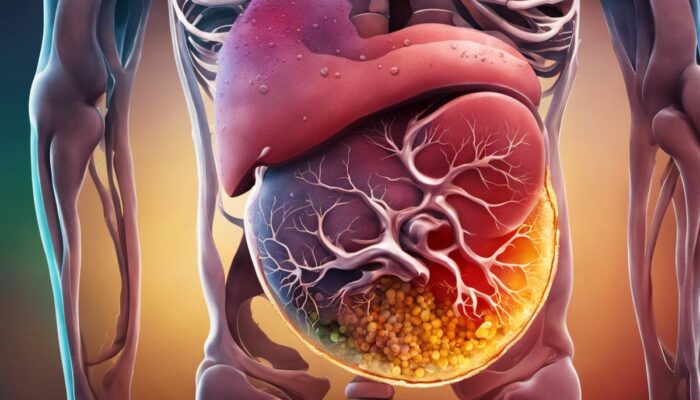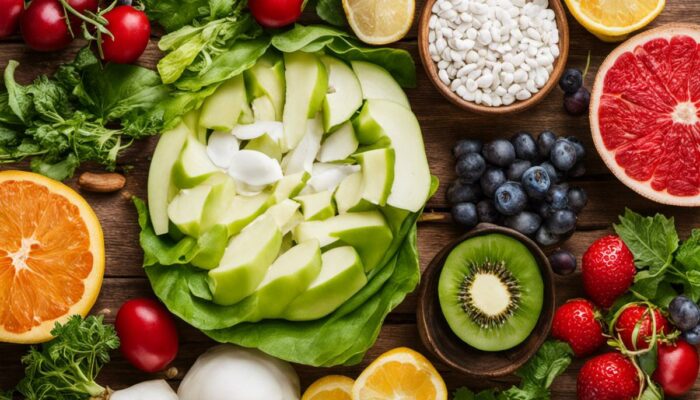With a crucial role in digestive functioning, stomach acid also known as gastric acid, is an essential component of our wellbeing. However, still, it’s a relatively unknown fact that a multitude of common health problems stem not from an excess of this vital acid, but rather from a deficiency.
In this situation boosting low stomach acid effectively becomes important. Exactly why understanding the integral functions performed by stomach acid, and paying attention to certain health issues that can ensue due to this type of deficiency should become apparent.
Moreover, making targeted dietary amendments and lifestyle adjustments that can naturally boost stomach acid production, thereby enhancing gastric health and overall well-being must be considered.
And, this is really the main point of this blog post today. For those with low stomach acid here are some things that you can try to help relieve this condition and bring your pH balance under control. So…
14 Ways of Boosting Low Stomach Acid Effectively
For those looking for ideas of ways to boost stomach acid, there are really 2 things to consider;
- Dietary Alterations and
- Lifestyle Modifications
Each of these can be further broken down to 8 + 6 points each;
- Understanding Digestion
- Incorporating protein-rich foods
- Opt for Foods High In Zinc
- Opt for Acidic Foods such as Citrus Fruit
- Opt For Fermented Foods and Probiotics
- Stay Hydrated Preferably with Distilled Water
- Limit Processed Foods and Sugars
- Add Apple Cider Vinegar To Your Drinks
- Embrace a Balanced Diet
- Participate In Regular Exercise
- Manage Stress and Anxiety
- Limit Alcohol and Caffeine
- Opt For Smaller More Frequent Meals
- Avoid Antacids, H2 Blockers, and PPIs
These are all things that can help you don’t need to do every single thing here but the more you can the more it should be able to help. One thing I didn’t mention is supplementing with Betaine HCL but I would suggest trying out the ideas above first.
Understanding the Role of Stomach Acid
Stomach acid, also known as gastric acid, plays a critical part in the process of digestion. It is produced by the stomach’s gastric glands and contains several components, the most crucial of which is hydrochloric acid (HCl). Its fundamental function is to break down foods, especially proteins, into a form that can be absorbed by the intestines.
Furthermore, stomach acid aids in killing harmful bacteria and viruses that enter the body with the food we consume, reducing the risk of illnesses and infections.
Hence, it plays a vital role in maintaining overall gut health.
The Importance of Proper Stomach Acid Levels
Sufficient levels of stomach acid are vital for optimal digestion. When the stomach acid levels are suitable, they ensure that the food is adequately broken down into a purée-like state called chyme before moving into the small intestine. This process allows the body to access all the nutrients effectively.
What Are Lower than Normal Stomach Acid Levels
Contrary to popular belief, many digestive issues are not caused by excessive stomach acid but rather a lack thereof. Conditions such as acid reflux, heartburn, and indigestion might indicate low stomach acid levels.
Other potential symptoms may include;
- Bloating,
- Burping,
- Flatulence,
- Nausea,
- Diarrhea, and
- Constant Feelings of Fullness.
Insufficient stomach acid might additionally lead to a lack of proper nutrient absorption, potentially causing nutrient deficiencies. In some cases, long-term low stomach acid might contribute to the development of severe health conditions, like osteoporosis, anemia, and autoimmune disorders.
It’s therefore essential to maintain proper stomach acid levels.
Promoting Adequate Stomach Acid Production
Several methods can be adopted to boost stomach acid production naturally. Incorporating a diet rich in zinc— for instance, through red meat, oysters, lentils, and chickpeas— can reinforce your stomach lining and stimulate acid production.
Drinking apple cider vinegar or lemon water before a meal can also help promote acidity.
Avoiding highly processed foods and reducing the intake of caffeine and alcohol can also significantly improve stomach acid levels. Another recommendation is to eat slowly and chew thoroughly to reduce the amount of air swallowed, reducing bloating and improving digestion.
Practicing mindfulness while eating, such as reducing distractions and focusing on the act of eating, can also encourage better digestion, including the production of stomach acid.
Overall, understanding the vital role of stomach acid and ways to maintain its healthy levels is key to maintaining good health and digestion.

Dietary Alterations for Boosting Low Stomach Acid
Factors Influencing Stomach Acid Production
Understanding that your stomach acid, medically known as hydrochloric acid, plays a pivotal role in your digestion, helps you appreciate the need to maintain its optimal levels. It breaks down proteins, stimulates digestion, and acts as a barrier against harmful microbes.
But if your stomach acid levels plummet, you might suffer from discomfort such as bloating, heartburn, and indigestion. To boost your stomach acid levels, consider these dietary changes.
Incorporate Protein-Rich Foods
Protein triggers gastric acid secretion. Therefore, consuming adequate portions of protein, including meat, fish, eggs, dairy, and plant-based proteins can significantly enhance your stomach acid production. However, make sure to chew these foods thoroughly, as this stimulates the production of hydrochloric acid too.
Opt for Foods Rich in Zinc
Zinc plays an instrumental role in producing stomach acid. Foods like oysters, beef, shellfish, and other seafood; fortified breakfast cereals, beans, nuts, and whole grains are zinc-rich, and incorporating them into your diet will boost your stomach acid levels.
Add a Bit of Acid
Consuming acidic foods like pickles or vinegar, also, citrus fruits such as oranges and lemons may enhance the acidity of your stomach. These foods can stimulate the secretion of gastric acid from cells in the stomach lining.
Add Fermented Foods and Probiotics To Your Diet
Fermented foods, including yogurt, kimchi, kefir, kombucha, and sauerkraut, are laden with healthy bacteria that can help increase stomach acid levels. Probiotic supplements can offer the same benefit if getting these foods into your diet seems challenging.
Drink Plenty of Water
Adequate hydration is essential for plenty of bodily functions, including digestion. However, to boost acid production, avoid drinking large amounts of water with meals as this can dilute stomach acid, impacting its effectiveness. One idea here is to invest in a water purifier as this will eliminate the need to buy bottled water and it is a good way to reduce the risks caused by microplastics and other contaminants.
Limit Processed Foods and Sugar
Processed foods, refined sugars, and unhealthy fats can decrease stomach acid levels, and result in conditions like acid reflux and stomach ulcers. Stick to a fresh, balanced diet free from excessive junk foods.
Introduce Apple Cider Vinegar and Lemon Water
Both apple cider vinegar and lemon water can stimulate your stomach to produce more acid, aiding digestion. Try starting your day by drinking warm water with a teaspoon of apple cider vinegar or lemon juice.
Overall, remember that a balanced diet and good eating habits, such as moderately-sized meals and thorough chewing, can markedly increase stomach acid production. However, for persistent concerns about low stomach acid, it is advised to consult a healthcare professional.

Lifestyle Modifications for Better Gastric Health
Embracing A Balanced Diet
Aim to adjust your eating habits to support your stomach’s function and increase acid production. Consuming lean proteins, and natural enzymes found in fruit, and including a variety of both cooked and raw foods in your diet can optimize your gastric health.
Fermented foods such as kimchi, sauerkraut, and pickled vegetables can also assist your stomach in producing more acid.
The Exercise Effect
Regular exercise and fitness sessions not only maintain overall body health but also influence the process and speed of digestion in your system. When you engage in physical activities, your body’s metabolism increases, leading to a quicker breakdown of food in your stomach.
Dedicate at least 30 minutes each day to exercises like walking, swimming, or cycling, which help enhance your metabolic rate and result in an increase in stomach acid.
Hydration: Concentration and Digestion
Always ensure that you are well-hydrated. Drinking sufficient amounts of water helps in the metabolic processes, including the production of stomach acid.
However, it’s important to note that drinking large amounts of water during meals can dilute stomach acid, which may impair digestion. Therefore, aim to consume most of your hydration between meals.
Managing Stress for Gastric Health
Quality of life, including mental health, directly influences physical health and digestion. High stress levels can interfere with your body’s ability to produce adequate stomach acid, leading to poor digestion. Employ stress-management mechanisms such as meditation, yoga, and deep-breathing exercises to maintain a calm mind and improve your stomach’s acid production.
Limit Alcohol and Caffeine Intake
Alcohol and caffeine can cause inflammations in your stomach lining and significantly weaken your stomach’s ability to produce acid. Try to limit your intake of caffeine and alcoholic beverages to reduce these impacts and promote better gastric health.
Opt for Smaller More Frequent Meals
Eating smaller meals throughout the day, as opposed to three large meals, can also help increase your stomach acid production. By eating frequently, you keep your stomach working to produce acid consistently, thereby increasing its acid levels over time.
Do not Depend on Antacids
While it may be tempting to reach for antacids when you experience heartburn or indigestion, these medications can over time decrease your stomach’s ability to produce enough acid.
Try to manage your heartburn through changes in your diet and lifestyle, and only use antacids when absolutely necessary.
In all these modifications, it is important to listen to your body and identify what makes it feel good. Each person is different, and what works well for someone else may not work for you.
Always consult your healthcare provider before making drastic changes to your diet or exercise routine.

Potential Risks and Precautions
While it is very important to maintain an optimal level of stomach acid for better digestion and absorption of nutrients, one must be cautious to avoid the potential risks associated with having too much stomach acid. Common issues such as heartburn, peptic ulcers, gastroesophageal reflux disease (GERD), Barrett’s Esophagus, and even oesophageal cancer can be spurred on by an overabundance of stomach acid.
Understanding Potential Risks
Having too much stomach acid, also known as hyperchlorhydria, is a condition that can cause discomfort and lead to complications like acid reflux, ulcers, and inflammation of the esophagus. High levels of stomach acid can also cause the deterioration of the stomach lining, leading to gastritis or stomach ulcers.
Moreover, there is a significant risk factor for certain types of stomach cancer. Continuous exposure to excessive stomach acid can even cause scarring and strictures, potentially leading to malnutrition due to impaired absorption of essential nutrients.
Precautions For Increasing Stomach Acid
Whilst increasing stomach acid levels may aid digestion and absorption of nutrients, it’s critical to be mindful of the following precautions:
- Consultation with a Healthcare Provider: Prior to making any significant changes to diet or lifestyle, consult your GP or a registered dietitian. They can make sure that any natural methods used won’t negatively impact any existing health conditions or medications you may be taking.
- Gradual Changes: There’s no need to rush. It’s best to increase stomach acidity gradually to avoid causing discomfort or complications.
- Sensitivity to Foods and Supplements: Some individuals are sensitive to particular foods, beverages, or supplements that can increase stomach acid. Thus, it’s essential to pay heed to your body’s responses and stop consumption if any adverse reactions occur.
- Healthy Lifestyle: Avoid smoking, excessive alcohol, and caffeine, as they can increase the production of stomach acid, potentially leading to complications. Keeping stress levels in check can also help, as stress, anxiety and lack of sleep may promote the overproduction of stomach acid.
- Regular Monitoring: Regular check-ups will help to monitor the impact of increased stomach acid on your overall health. If you observe symptoms of conditions like acid reflux, gastroesophageal reflux disease (GERD),, or peptic ulcers, consult your doctor immediately.
- Adequate Hydration: Drinking ample water throughout the day can help neutralize excess stomach acid, providing some relief from related symptoms.
Remember, our bodies are designed to maintain a delicate balance, and even seemingly minor alterations can ripple out to affect that balance in unexpected ways. It’s always prudent to approach all health interventions – even natural ones such as increasing stomach acid – with sensitivity, understanding, and professional guidance.
In Conclusion
An awareness of stomach acid, its functions, and ways to maintain its natural concentration within our bodies is important, given its significance in our overall health. Dietary changes and lifestyle modifications can play a crucial role in naturally elevating gastric acid levels, whilst also improving general wellbeing.
However, it’s essential to tread mindfully. Overproduction of stomach acid can lead to health complications, hence precautions are necessary when increasing stomach acid levels. Through adequate knowledge and understanding of stomach acid, people can make informed decisions about incorporating changes in their dietary habits and lifestyle in the pursuit of optimum gastric health.
>>>To Learn More About Boosting Low Stomach Acid Check Out Our Page HERE<<<




Anxiety and Depression best ways to lower blood sugar BiOptimizers blood pressure supplements blood sugar support supplements Digestive Enzymes Supplement digital products Dr Sam Robbins Erectile dysfunction Exercise Gut Health Healthy Living heart health HFL how to lower blood sugar levels How To Lower Cholesterol insulin resistance joint health supplement Keto keto dieting Keto Diet Weight Loss leaky gut supplements leptin resistance list Magnesium deficiency Matt Gallant mental health multivitamins Nootropics nutrient supplements Probiotics Probiotic Supplements proteolytic enzymes reverse type 2 diabetes stress and anxiety stress relief vitabalance vitapost Wade Lightheart weight loss articles weight loss diet plans weight loss product reviews weight loss supplements weight loss supplements that work weight loss tea